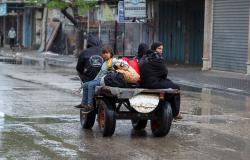
A column by Ton van Haperen in the April issue of The Education Magazine attracted a lot of attention on social media last week. It wasn’t that hard to guess why. There was swearing in church – and not a little bit.
‘I started teaching in August 1985,’ Van Haperen reflected. ‘My salary was 1,670 guilders. After paying health insurance premiums, my salary was slightly above social assistance benefit for married people. I rented a house, had no curtains, no car, I couldn’t afford it. For that income I taught 27 lessons. A year later that was 32 lessons, purely for the money. With no class under 30 students.’
That was forty years ago. But teachers still peddle the image of hard work and little pay. How right is that?
Excellent (starting) salaries
Van Haperen consulted the government’s website, because it is all neatly stated there: secondary education has three scales where the monthly salary including holiday pay, bonding allowance and end-of-year bonus at the end of the career line varies from €5990 (lowest scale) to €7890 ( highest scale). This amounts to a gross annual salary of between €71,880 and €94,680.
The starting salary is also excellent, Van Haperen noted. ‘The average for an academic in the Netherlands is € 2,700. A teacher in the lowest scale starts with € 3,850 per month, including holiday pay and end-of-year bonus. By comparison, I earn less in college than I did in school. My son is an IT professional in the business world, he earns less than a teacher.’
Is it perhaps the case that teachers now earn excellent wages, but that the workload is more enormous than ever, and that is why part-time employment is often chosen? ‘No,’ Van Haperen noted, ’24 lessons of 50 minutes, 36 weeks, no sweat. The only reason teachers work part-time is because they can afford it.’
What remains is the well-known saying that teachers ‘give something back to society’. But we also have to nuance this, says Van Haperen, now that more and more students do not master the basic skills of language and arithmetic. ‘There is not a single teacher who has apologized for these worthless learning outcomes. It is never their fault. You know, teachers are living a lie. They think they are underpaid and overloaded. But pay and workload are not the cause of the teacher shortage, the nagging underperformance of the profession is the cause mood killer.‘
Just last week, those ‘worthless learning outcomes’ – of course in slightly different words – were also discussed again in the annual report of the Education Inspectorate. The figures are catastrophic year after year and indicate only one thing: Dutch education is in a state of dissolution. More than half of primary school pupils do not reach the target level (2F) in arithmetic. In addition, in the second year of pre-vocational secondary education, the fundamental level (1F) in arithmetic and mathematics is often not achieved, while 1F is the basic level that 85 percent of students should have mastered by the end of primary school. The language level of students is also doing dramatically bad. One in three of 15-year-olds is now ‘insufficiently literate’, i.e. functionally illiterate.
History became an elective subject
Unfortunately, the Inspectorate did not tell us anything about the state of history education, but the learning outcomes there could also be worthless. When the Mammoet Act (1968) was introduced, history disappeared as a compulsory examination subject from secondary education – it became an elective subject. Since then, large groups of students have arrived at colleges and universities every year without any significant historical baggage.
Historical nonsense has become very common in the Netherlands. We laugh about it, like in 1996, when a survey of the Historical Newspaper among members of the House of Representatives it turned out that our parliamentarians were unable to answer even simple questions about our national history correctly.
You might expect the Association of Teachers of History and Government in the Netherlands (VGN) to be fanatically working to halt the decline of its own profession. But what is the practice?
In 2019, then VGN chairman Ton van der Schans caused a stir with a plea to ‘internationalize’ history education in primary schools. For almost twenty percent of the students, Van der Schans reasoned, the Netherlands is not their ‘own country’ and therefore children at primary school should not only be told who William of Orange was: ‘It is at least as important that they learn that Atatürk was the founder. belongs to Turkey.’
It was a strange speech. As if the historical significance of Atatürk depends on the number of students with a Turkish background. Moreover: the ‘own country’ in Dutch schools is of course always the Netherlands, even when the parents or (great) grandparents of some students were born elsewhere.
‘Burden of slavery’
Marjan de Groot-Reuvekamp, Van der Schans’ successor as VNG chairman, reported in 2022 The Telegraph that more and earlier attention should be paid to ‘the legacy of slavery’ at school. Primary school children should learn about the colonial past from the age of about 7. ‘There is a growing realization that slavery is also our own story. And also the realization that descendants are affected by it to this day.’
Is that bona fide history teaching? No, it is the currentist-alarmist view of the past that – together with the associated moral reflex – belongs to the fashionable woke ideology. ‘We then judge the past by the emotions it evokes in us,’ warned the famous historian A.Th. van Deursen already in 2000. ‘But history is not about ourselves, it is about other people. These must therefore be the benchmark. Whether that gives us cause for suffering or joy is not of essential importance.’
Teachers are living a lie, Van Haperen concluded. Those are five words to think about carefully.
Roelof Bouwman is a columnist and deputy editor-in-chief of Wynia’s Week. He writes about politics, history and media.
Wynia’s Week It’s his birthday! Are you already a donor? You can donate in many different ways. Thank you!
Tags: Taboo generously paid teachers finally apologize catastrophic state Dutch education
-




